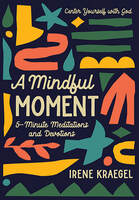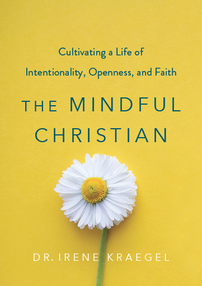 Most stuff in life, I can't change. This is really hard, especially when it comes to unpleasant emotions. "Unpleasant" is a mild word for some of the emotions I feel. Deep, raging, empty despair would be a better description. Sometimes I feel really crappy. With all the self-help books, websites, and blogs floating around, one is given the impression that with a little more work, we can get rid of these unpleasant emotions. But the older I get, and the more work I do in the mental health field, the more I am convinced that painful emotions come with being human. Sure, we all have our own particular flavor--anxiety, sadness, anger, despair--but none of us feel great all the time. The idea that "normal" means "feeling good" is, statistically speaking, wrong. "Normal" means lots of different emotions--some with a clear explanation and others with no explanation at all. That is one of the reasons that the serenity prayer is coming to mean more to me as I age. We associate the first four lines of this prayer with Alcoholics Anonymous. "God grant me the serenity to accept the things I cannot change; courage to change the things I can; and wisdom to know the difference." (Of course, those of us from Generation X also associate it with Seinfeld...but that's a subject for another blog...) It takes wisdom to know the difference between things I can change and things I cannot. One thing that I cannot change is emotion. Feelings come and go, they rise and fall, they swell like waves of the ocean. Sometimes the emotional waters are quiet and peaceful, dappled with sunlight and caressed by a gentle breeze. Sometimes they are stormy--crashing waves, torrential rains. If my fundamental okayness is defined by feelings (if I am a "boat" on these waters), the storms are bad news, putting me in grave danger. One of my favorite metaphors within the tradition of mindfulness is that of the ocean. The ocean is full of life and beauty, containing hundreds of thousands of marine life forms, and its average depth is over 2.5 miles. It is huge, with less than 10% of its volume having been explored by humans to-date. The tides of the ocean respond to the gravitational pulls of the moon and sun, keeping us in a rhythmic dance with the universe. Nearly 20 million tons of gold are said to be floating in our world's oceans. You are like the ocean--the whole of it. Your thoughts and feelings are the surface of the ocean. When you identify with your thoughts and feelings, when your thoughts and feelings define your sense of who you are, your attention is focused on your surface. Underneath lies depth of life and beauty and resources that are unaffected by storms on the surface. Your thoughts and feelings come and go...come and go...come and go. They always will, as long as you have breath. But you are deeper, richer, calmer, bigger than these surface experiences. No matter the intensity of your emotion, you are...at a deeper level...okay in any weather. You are the ocean.
The "serenity prayer" reminds me that I don't have to fight the storms of emotion and thought that pass through my life, if for no other reason than that I can't. Who can stop a storm in the middle of the ocean? No one. That raging despair that sneaks up on me on a Sunday afternoon out of nowhere? Totally out of my control, not something I can change. Nor do I need to change it in order to be okay. Here is what is in my control: cultivating life habits (including thinking habits) that send me into deeper, calmer waters -- that get my attention unglued from the huge emotional waves on the surface of my being. I can't stop the emotion; I can watch the storms with curiosity and openness. (Ever stood outside in the middle of a summer thunderstorm? Amazing!) Practically, this means observing my experiences -- thoughts, feelings, physical sensations, and urges -- with an attitude of self-compassion and an awareness of God's presence. It means taking time to meditate, giving myself the silence and space needed to get in touch with a deeper sense of myself beyond the feelings passing through. I haven't found any shortcuts to meditation when it comes to living wholeheartedly in the midst of life's storms. If you are new to mindfulness meditation and are looking for some tools to cultivate this sense of depth and calm through the storms, may I suggest starting with the meditations of Mark Williams? These lovely, brief meditation guides pair seamlessly with his very helpful book entitled Mindfulness: An Eight-Week Plan for Finding Peace in a Frantic World. I also recommend to you the ancient practice of Lectio Devina -- meditating on (slowly chewing on) the words of scripture, creating the space for God's presence and truth to seep into the depths of your soul through the reading of His word. "Now may the Lord of peace himself give you peace at all times and in every way. The Lord be with all of you." (2 Thessalonians 3:16). Through any weather. Peace.
1 Comment
Cherry Stacey
3/8/2015 01:17:27 am
My very favorite all purpose balance restoring prayer. In times of great stress and despair, when I can not grasp a coherent thought, I can say these words and be restored to right thinking. Love you and miss you my friend!
Reply
Leave a Reply. |
Author
I am Irene Kraegel. I am licensed as a clinical psychologist and teach mindfulness on a faith-based university campus. I practice mindfulness because it opens me up to God (a.k.a. brings joy). I am writing here in hopes of sharing some of my experiences and thoughts related to the practice of mindfulness in the life of a Christian. Thanks for reading! Books
Blog archives
December 2023
|




